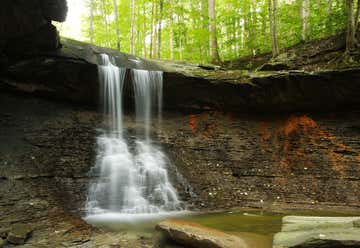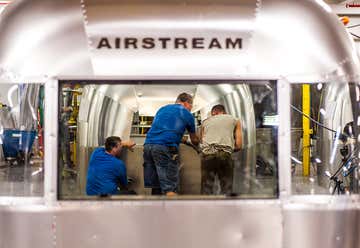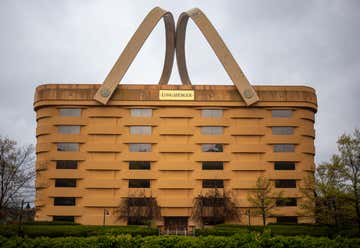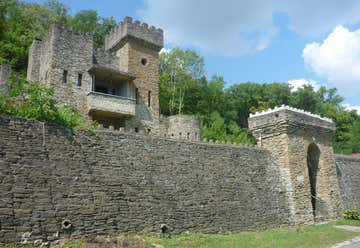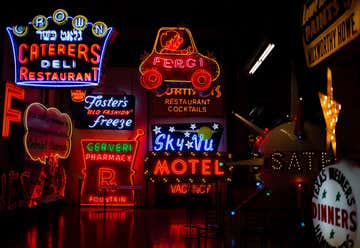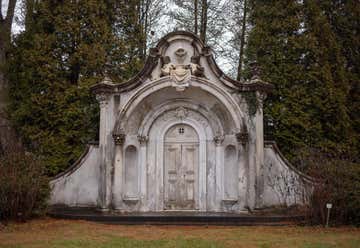Ohio is a land of contradictions. Simultaneously derided as a Midwestern flyover state and celebrated as a bellwether state, Ohio has the longest streak in correctly predicting the outcome of each Presidential election since 1964 (and was only wrong twice before that). The state has produced eight presidents, dozens of actors, astronauts, sports superstars, and several serial killers. Even Superman can claim to be a “Buckeye”—a term that anyone with Rust Belt roots may recognize as not only the state tree’s shiny, nutlike seed, but also as a delicious chocolate-and-peanut-butter candy, as well as an Ohio State alum.
There is no shortage of attractions from Cleveland to Cincinnati, with Columbus in the heart of “the Heart of It All.” Here are our top 10 favorite things to do in Ohio.
It’s Christmastime in Cleveland’s Tremont neighborhood year-round: Filming for the holiday classic A Christmas Story wrapped up here in January of 1983, but the famous house from the movie has since been restored to its original appearance. Next-door, the Bumpus House and three other houses situated across the street include authentic movie props, costumes, and a gift shop. Superfans can book an overnight stay in the Christmas Story or Bumpus houses and even casual guests are able—and highly encouraged—to recreate their favorite scenes as they explore the house (just don’t shoot your eye out).
Luckily, the state’s only national park is a good one. Situated in between two of Ohio’s largest cities, Cleveland and Akron, Cuyahoga Valley National Park is full of native plants, wildlife, and other attractions. The Cuyahoga River runs through the more than 30,000-acre park, which features dozens of wooded biking and hiking trails. The Towpath Trail follows the route of the historic Ohio and Erie Canal—look for remnants of canal structures, a covered bridge, and several historic homes that are located within the park. You’re almost guaranteed to spot some of the thousands of animals that call the park home, including great blue herons, beavers, bald eagles, river otters, and seven species of bats.
Sherry Groom currently holds the Guinness World Record for “largest collection of trolls.” As of 2018, there were 8,130 unique trolls in her collection—when you add in duplicates that number increases drastically—and you can see them all (and more) at the Troll Hole Museum in downtown Alliance. The museum is part traditional exhibition space and part art gallery, with several floors of troll history packed into two adjoining buildings. The Grumpy Troll cafe, located in the back of the obligatory gift shop, serves coffee, teas, and waffles. Guests are encouraged to bring in a customized troll and add it to the crowd outside of the museum’s miniature football stadium (a nod to the nearby Pro-Football Hall of Fame), and Groom has future plans to add a Rock n’ Troll Hall of Fame as well.
Shawshank Prison may not be real, but its walls are—and they belong to the Ohio State Reformatory (OSR), located in Mansfield. OSR opened in 1896 and housed more than 155,000 inmates during its nearly 100 years in operation. Three years after it closed, the reformatory served as a primary filming location for the Shawshank Redemption, and today it’s the epicenter of the Shawshank Trail, which includes all 16 of the movie’s filming locations. A preservation society has hopes to eventually restore OSR—home of the largest free standing steel cell block in the world—to its original state but it’s pretty perfect in its current crumbling and peeling state. Proceeds from tours and events help fund grounds maintenance and structural improvements.
There’s nothing that says classic road trip more than the sight of an Airstream rolling down a scenic highway. If you’ve ever wondered how they’re made, you can take a free, two-hour walkthrough tour at the production plant in Jackson Center. Tours are currently on hold due to the construction of a new 750,000-square-foot facility completely powered by renewable energy, but once they resume we guarantee you’ll be—much like the iconic silver trailers themselves—riveted.
It’s hard to miss the Longaberger Basket Company’s headquarters while driving down State Route 16 in Newark. An exact replica of the now-defunct company’s most popular basket, the 180,000-square-foot, seven-story basket-shaped building is 160 times larger than its inspiration. The 30,000-square-foot atrium is topped with a glass ceiling and two 150-ton handles. The Longaberger Basket Company ceased operations in 2018 and abandoned its novelty headquarters, but a developer has plans to turn the building into a luxury hotel.
Sir Harry Andrews’ medieval masterpiece (also known as Château Laroche, French for “rock castle”) is located on the banks of the Little Miami River, about 25 miles northeast of Cincinnati. Andrews spent decades erecting his castle from native river stone and concrete bricks molded in milk cartons. When he died, he left his life’s work to the organization he founded, the Knights of the Golden Trail, whose members still maintain the castle. It has everything you’d expect from a working fortress, including a dungeon, dry moat, bell tower, and English battle deck. In addition to self-guided tours, the castle is available to rent for small weddings, Boy Scout sleepovers, school tours, and paranormal investigations.
Located on the banks of the Ohio River, where thousands of enslaved people once crossed from the South, the National Underground Railroad Freedom Center is dedicated to telling the stories of their struggle for freedom. The most complex exhibits and artifacts are located on the top floor, but the centerpiece of the museum is a two-story log jail that once stood in Kentucky. The museum features several permanent and revolving exhibits including films, interactive displays, and traditional works of art.
Just the parking lot of the nearly 20,000-square-foot American Sign Museum in Cincinnati features no less than 10 signs. The inside contains hundreds more—some lit with neon and lightbulbs, some hand painted or gilded gold—comprising a collection that spans more than 100 years of history. The numerous neon signs are maintained and repaired in-house by Neonworks, the only neon fabrication and repair shop located within a hundred miles. Visitors are welcome to watch as technicians bend tubes, run diagnostics, and repair broken signs from the museum’s collection.
The first interment at Spring Grove occurred on September 1, 1845, during the height of the rural cemetery movement. In 1987, the third largest cemetery in the U.S. added “Arboretum” to its official name. Today, the 733 acres are populated with an extensive collection of native and exotic flora, including at least 500 species of woody plants and 1,000 trees, shrubs, annuals, and perennials labeled for research purposes. The monuments and mausoleums that dot the grounds represent several eras and include an Egyptian-style pyramid, a sphinx, obelisks, and reproductions of classic European statues. More than 20,000 (living) people visit Spring Grove every year—not including those attending a burial—and the cemetery offers regular themed tours and maps for self-guided walks.


